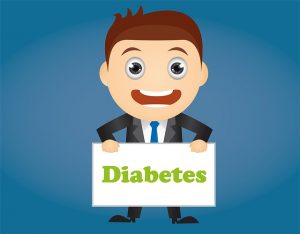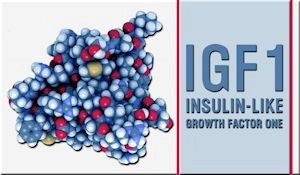Video Link: https://vimeo.com/294051471
Video Download: Atherosclerosis Diabetes And Low T Are All Related Part 1
Video Stream: Atherosclerosis Diabetes And Low T Are All Related Part 1
Video Link: https://vimeo.com/294051855
Video Download: Atherosclerosis Diabetes And Low T Are All Related Part 2
Video Stream: Atherosclerosis Diabetes And Low T Are All Related Part 2
For men, Testosterone has always been recognized for its importance with regard to sexual function, but throughout the last decade, researchers continue to become more aware of the other important effects of Testosterone, and how dangerous Testosterone Deficiency is for aging men.
Recent research published in the Journal of Clinical Endocrinology and Metabolism has uncovered a strong link between Testosterone and Atherosclerosis in men with Adult-Onset Diabetes.
What Is Atherosclerosis?

Atherosclerosis is also known as “Hardening of the Arteries,” and is a condition in which cholesterol, fats, and other materials start to form plaques in the arteries, which inhibit proper blood flow and make the heart have to work harder to pump blood.
Atherosclerosis increases the risk of numerous other diseases, and vastly increases the risk of blood clots, heart attack, and stroke.
Heart disease and other cardiovascular associated diseases are the leading causes of death in Western men.
Atherosclerosis, Diabetes, and Low-T are Related
In the past, researchers have already linked low Testosterone Deficiency with both an increased risk of Diabetes and Atherosclerosis, but this study demonstrates how the three conditions interact, feeding on each other to diminish the health of the patient.
Also, this study indicates the severity of Atherosclerosis and provides insight into how Testosterone Levels and Atherosclerosis severity are correlated.
The side effects of testosterone have to deal with having too little or too much; the key to health is having a healthy balance of testosterone levels.
Low-T Associated with Increased Incidence and Increased Severity of Atherosclerosis
This study shows that not only does Low-T -- the clinical diagnosis of hypogonadism -- increase the risk of Atherosclerosis, it also increases the severity of the condition, both with regard to plaque build-up and other health issues related to that build up.
Boosting  testosterone if levels are too low can help to alleviate some of these systems, however.
testosterone if levels are too low can help to alleviate some of these systems, however.
In this study, the researchers related Low-T (shorthand for low testosterone) with many physiological issues associated with Atherosclerosis, including inflammation, the number, and severity of plaques present in the arteries, and the thickness of the carotid arteries, which are responsible for delivering freshly oxygenated blood to the brain.
Testosterone food
The results of this research show that males that had Adult-Onset Diabetes, in combination with low testosterone, had six times the risk of patients with only Diabetes to experience malfunctions of epithelial function and carotid arteries that were thicker than usual as a result of atherosclerosis.
Testosterone foods could then be said to be foods that prevent this kind of plaque build up in the arteries. Avoiding junk food is one way to help keep testosterone levels improved because these food are associated with belly fat that tends to hold estrogen in the body.
Among patients that did not have Testosterone Deficiency, only ten percent of patients were in the at-risk category about cardiovascular disease, whereas fifty-four percent of patients with Low-T were in the at-risk group.
Hypogonadism (or low t / low testosterone) is, therefore, a risk factor for cardiovascular disease.
Atherosclerosis Leads to Deadly Cardiovascular Disease
One of the authors of this study is Dr. Javier Farias of Sanatorio Guemes University in Argentina.
This study was a multinational, multi-center effort which also involved the Emory University in Atlanta, Georgia. Atherosclerosis is one of the root causes and critical indicators of Cardiovascular Disease, one of the most deadly diseases in America and the world today.
This fact cannot be stated enough; it flies over the head of most people.
Injectable Testosterone Therapy Currently Being Evaluated as a Potential Treatment Option
 In recent years, there have been a few studies that have presented evidence which supports the notion that Testosterone Replacement increases the risk of heart conditions such as heart attack, and this has led Bio-Identical Testosterone to undergo increased scrutiny.
In recent years, there have been a few studies that have presented evidence which supports the notion that Testosterone Replacement increases the risk of heart conditions such as heart attack, and this has led Bio-Identical Testosterone to undergo increased scrutiny.
Of course, the body of research is mixed, as many studies have also shown that when Testosterone is administered correctly, the risks of heart-related issues are significantly mitigated.
The issue with the studies which reported the potential cardiovascular dangers of Low-T Therapy is that the patients that used the treatment and the doctors that prescribed it did not provide the procedure most safely and effectively possible.
Most cardiovascular issues related to Testosterone Restoration are either the result of increased Estrogen Levels in the bloodstream or increased Red Blood Cell Count owing to increased Erythrocyte activity in the bone marrow.
When both of these factors are appropriately accounted for and monitored, with the appropriate counteractive measures put in place, the safety of Testosterone Therapy for the heart increases dramatically.
In most testosterone programs, HCG injections are included to keep the testicles nice and full. Arimidex / Anastrozole is incorporated into a testosterone protocol by most endocrinologists to keep estrogen in check; these drugs help prevent aromatization of testosterone into estrogen.
High testosterone levels in men are just as dangerous as low testosterone levels in men.
High Testosterone Levels in Men
Patients that abuse Testosterone, especially men, do put themselves at risk, but for patients that legitimately use Testosterone Therapy for the treatment of Low-T and Hypogonadism, the therapy is safe when the proper protocol is followed.
Testosterone Therapy and Optimization increases in popularity annually in the United States, with millions of men using these treatments in an attempt to enhance their health and wellness.
Increasing testosterone levels does not have to be dangerous if one follows a protocol from an experienced doctor and has their levels tested regularly. What might be considered normal testosterone levels and ranges for aging men is not necessarily healthy.
Although research at this point indicates the relative safety of Testosterone replacement when used as stated, it's important to note that there have been no sufficiently long-term clinical trials concerning the safety of Testosterone for the heart, although no studies published thus far present strong evidence without having series issues with a methodology.
The FDA recently has required some testosterone makers to put warnings on their products because of the risk of strokes and heart attacks, so some recent studies are suggesting that there are dangers associated with increasing testosterone in older men.
High testosterone levels in men should be avoided. Instead, optimal levels should be sought.
Testosterone, Diabetes, and Atherosclerosis
This Atherosclerosis study was small scale and examined and monitored a total of 115 male patients suffering from Adult-Onset Diabetes. All of the patients that were examined were under the age of seventy, and none of the patients had a clinical history of  cardiovascular disease.
cardiovascular disease.
What researchers discovered was that more than over fifty percent of the patients examined had Testosterone Deficiency.
Many people are looking to increase their testosterone levels with so-called boosting pills on the Internet, but these are generally ineffective.
Only a testosterone prescription under the medical guidelines of an experienced physician can one boost their testosterone. There are natural ways to raise one's testosterone levels as well, through cardiovascular oriented exercises and bodybuilding training.
Previous studies have shown that men with Testosterone Deficiency and Diabetes simultaneously have an increased mortality risk.
One study, in particular, shows that patients with Low-T and Diabetes at the same time were over 17% more likely to experience death throughout six years.
Cardiovascular Disease and Atherosclerosis are clearly two related health issues that play a role in increasing this mortality risk.
Although this study was preliminary, the results were significant and easily warranted further examination.
It's clear that these three conditions (Low-T, Type-2 Diabetes, and Atherosclerosis) are correlated, based merely on the results of this study, but a more extensive review will be necessary to assess the strength and relatability of that correlation more accurately.
Researchers Unsure Which Came First—Low-T or Atherosclerosis
This research does not have any power of causality—that is to say, it does not provide  reliable evidence regarding whether Testosterone Deficiency is a symptom of Atherosclerosis or a precursor to the condition.
reliable evidence regarding whether Testosterone Deficiency is a symptom of Atherosclerosis or a precursor to the condition.
A larger, future study will have the power to present evidence regarding a causal relationship.
It is clear that Testosterone Deficiency and Diabetes are both conditions that significantly impact health and quality of life, and both conditions affect cardiovascular fitness in at least some way.
Perhaps in the future, as evidence bears out, Testosterone Therapy, whether with creams, patches, injections, or implants, might be a tool in the battle against both Atherosclerosis and health risks associated with Type-2 Diabetes.
Taking a natural approach to increasing testosterone can be a healthy alternative to testosterone prescriptions.
Increase Testosterone Through Diet
Going to bed on an empty stomach is thought to increase one's testosterone levels naturally. Another approach is to avoid junk food because it can cause the midsection to enlarge.
In men, this means getting a spare tire; in women, it means developing the pear or apple shape. Low calorie and high nutrient-dense food, lean meats high in protein and high vegetable intake have been associated with increased testosterone levels. These are  natural ways to boost one's testosterone level.
natural ways to boost one's testosterone level.
However, if you decide you would like to pursue testosterone replacement therapy.
We can report that many patients who used testosterone in conjunction with Sermorelin claimed they had the best results, better than those using testosterone replacement and HGH injections.
A typical testosterone dose is a 1ML injection per week, usually done intramuscularly on a Monday morning. HCG is used to keep the testicles nice and full because when one goes on a Testosterone injection program, one's natural production is at risk of decline.
As stated above, estrogen blocker pills are prescribed with any testosterone program.
When all things are considered, diet and exercise can boost testosterone levels in men, but if you feel you need a little more help, a prescription for testosterone cypionate, enanthate, or propionate might be the right choice for you.
Our form on the site, if filled out, can ensure you receive a full no-obligation consultation from one of our physicians or patient advisers.
Reference
Are Low Testosterone Levels Linked to Atherosclerosis in Men?
Contact Us For A Fast And Professional Response

- Sermorelin — HGH Injections Versus Sermorelin and Testosterone Therapy Programs [Last Updated On: February 20th, 2025] [Originally Added On: September 20th, 2020]
- The scientific research benefits of testosterone treatment (TRT) [Last Updated On: September 5th, 2025] [Originally Added On: September 26th, 2020]
- Health Changes Associated with Low Testosterone and Andropause [Last Updated On: June 15th, 2025] [Originally Added On: November 16th, 2020]
- Five Sports for Living Longer – Life Extension Through Sport [Last Updated On: March 16th, 2025] [Originally Added On: December 2nd, 2020]
- Covid-19 Mortality Risk Correlates With Low-T [Last Updated On: April 16th, 2025] [Originally Added On: December 17th, 2020]
- New Research Explores How Testosterone Influences Your Popular or Unpopular Opinions [Last Updated On: January 16th, 2025] [Originally Added On: February 22nd, 2021]
- Primary Versus Secondary Hypogonadism [Last Updated On: January 5th, 2025] [Originally Added On: March 15th, 2021]
- Testosterone Cypionate Information [Last Updated On: August 24th, 2025] [Originally Added On: May 5th, 2021]
- Testosterone Replacement Therapy May Help Cure Non-Alcoholic Fatty Liver Disease [Last Updated On: January 13th, 2025] [Originally Added On: June 5th, 2021]
- Hydraulic Fracturing: Another Environmental Pollutant That Affects Your Testosterone Levels [Last Updated On: January 7th, 2025] [Originally Added On: July 11th, 2021]
- Can Low Testosterone Be Cured? [Last Updated On: January 17th, 2025] [Originally Added On: September 5th, 2021]
- Low Testosterone (Low T) [Last Updated On: April 25th, 2025] [Originally Added On: September 7th, 2021]
- Low Testosterone – A Possible Link to Rheumatoid Arthritis Risk? [Last Updated On: January 21st, 2025] [Originally Added On: February 12th, 2022]
- The (Surprising) Necessity for Estrogen in Men [Last Updated On: January 22nd, 2025] [Originally Added On: March 1st, 2022]
- Anti-Aging Benefits from Hormone Balance [Last Updated On: January 18th, 2025] [Originally Added On: March 22nd, 2022]
- Male Testosterone Levels Have Dropped by Half - Fact or Myth? [Last Updated On: August 11th, 2025] [Originally Added On: May 14th, 2022]
- Tlando is on the Market – Oral Testosterone Replacement Therapy [Last Updated On: January 20th, 2025] [Originally Added On: June 9th, 2022]
- Tlando Low-T Treatment - A Safe and Effective Pill for Testosterone Deficiency [Last Updated On: August 17th, 2025] [Originally Added On: June 25th, 2022]
- Fatigue and Lack of Sexual Interest: Could it be Male Menopause? [Last Updated On: January 25th, 2025] [Originally Added On: June 27th, 2022]
- The Power of Testosterone—Improving Memory in Diabetics [Last Updated On: August 16th, 2025] [Originally Added On: July 12th, 2022]
- Kyzatrex Achieves FDA Approval—A Brand New Oral Testosterone Treatment [Last Updated On: August 18th, 2025] [Originally Added On: August 13th, 2022]
- How Testosterone and Social Context Influence Behavior [Last Updated On: August 30th, 2025] [Originally Added On: December 11th, 2022]

















